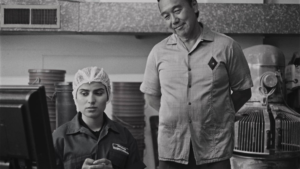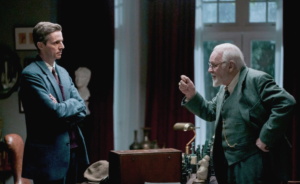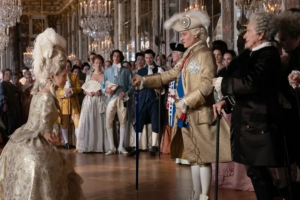Reviewed by GREG KING
Director: Alejandro Gonzalez Inarritu
Stars: Javier Bardem, Maricel Alvarez, Diaryatou Daff, Eduardo Fernandez, Hanaa Bouchaid, Guillermo Estrella.
A down beat and depressingly realistic drama about broken lives, family, dysfunctional relationships, fatherhood, parental responsibility, spirituality, survival and morality. Biutiful is the new film from Mexican director Alejandro Gonzalez Inarritu (Amores Perros, 21 Grams, Babel), who is drawn towards fractured, multi-layered stories that deal with death and human connections formed in the wake of tragedy. His films are often profound and complex, and the different narrative layers slowly reveal themselves.
This is his first film without his regular collaborator Guillermo Arriaga. Inarritu, but was written in collaboration with first time feature writer Nicolas Giacobone. Biutiful is not as complex structurally as Inarritu’s previous films, and its focus is a lot narrower, but it still is a powerful if bleak and haunting meditation on life, humanity and human suffering.
The film is set in Barcelona, and centres on Uxbal (Javier Bardem, in one of the best performances of his career). Uxbal is a petty criminal who is involved in finding a cheap labour source amongst illegal immigrants to work in sweatshops. They produce cheap knock-offs of high-end brand luxury items, which are then sold to unsuspecting tourists. He is also something of a spiritualist, who is able to communicate with the recently departed, and give comfort to the surviving relatives. To some though he is little more than a cheap conman.
But when Uxbal learns that he has terminal cancer and only a couple of months to live, he sets about trying to get his life in order. He is chiefly concerned about providing a stable environment for his two children, whom he clearly loves unconditionally. His estranged wife Macramba (Maricel Alvarez) is bi-polar and an unsuitable parent. Uxbal is looking for redemption, but, in Inarritu’s typically bleak fashion, he doesn’t find it. However, when the narrative shifts away from Uxbal the film tends to falter slightly and loses some of its urgency. Major subplots explore the plight of his criminal colleagues – a pair of gay Chinese living on the fringe of society – and an African immigrant (Diaryatou Daff) who becomes a guardian for his children.
In his Oscar-nominated performance, Bardem brings a weary dignity and depth to the deeply flawed Uxbal. His character here is a contrast to the monster he recently played in No Country For Old Men, and he elicits a measure of sympathy for a man who is at times unpleasant.
In fact, most of the characters here are unpleasant, and audiences will find it hard to empathise with them. The supporting cast consists largely of non-professional actors, and they breathe life into their characters. Eduardo Fernandez is good in a small role as Uxbal’s sleazy brother Tito, who runs a nightclub. Alvarez brings a wounded quality to her performance as the volatile, pill-popping and irresponsible Macramba. Hanaa Bouchaid and Guillermo Estrella also register strongly as Uxbal’s two children, caught up in the emotional battle between their parents.
Inarritu gives us a rather grim view of Barcelona, picturing it as a grimy city full of poverty, homelessness, illegal immigrants and petty crime. Inarritu’s regular cinematographer Rodrigo Prieto uses hand held camera to give a sense of urgency to the material. Gustavo Santaolalla’s score further underscores the emotional impact of the film. This grim and unrelentingly harrowing film makes for tough going, but it is also sometimes surprisingly moving.
★★★




